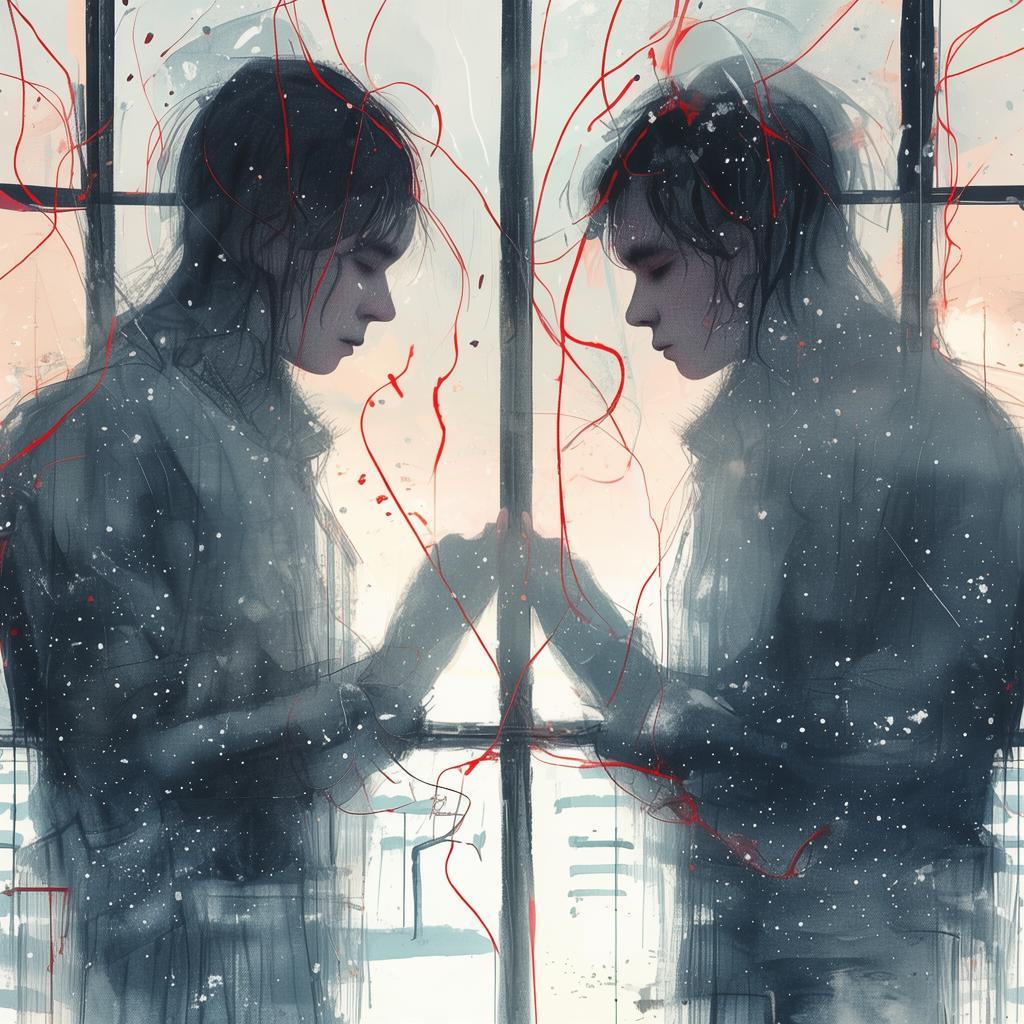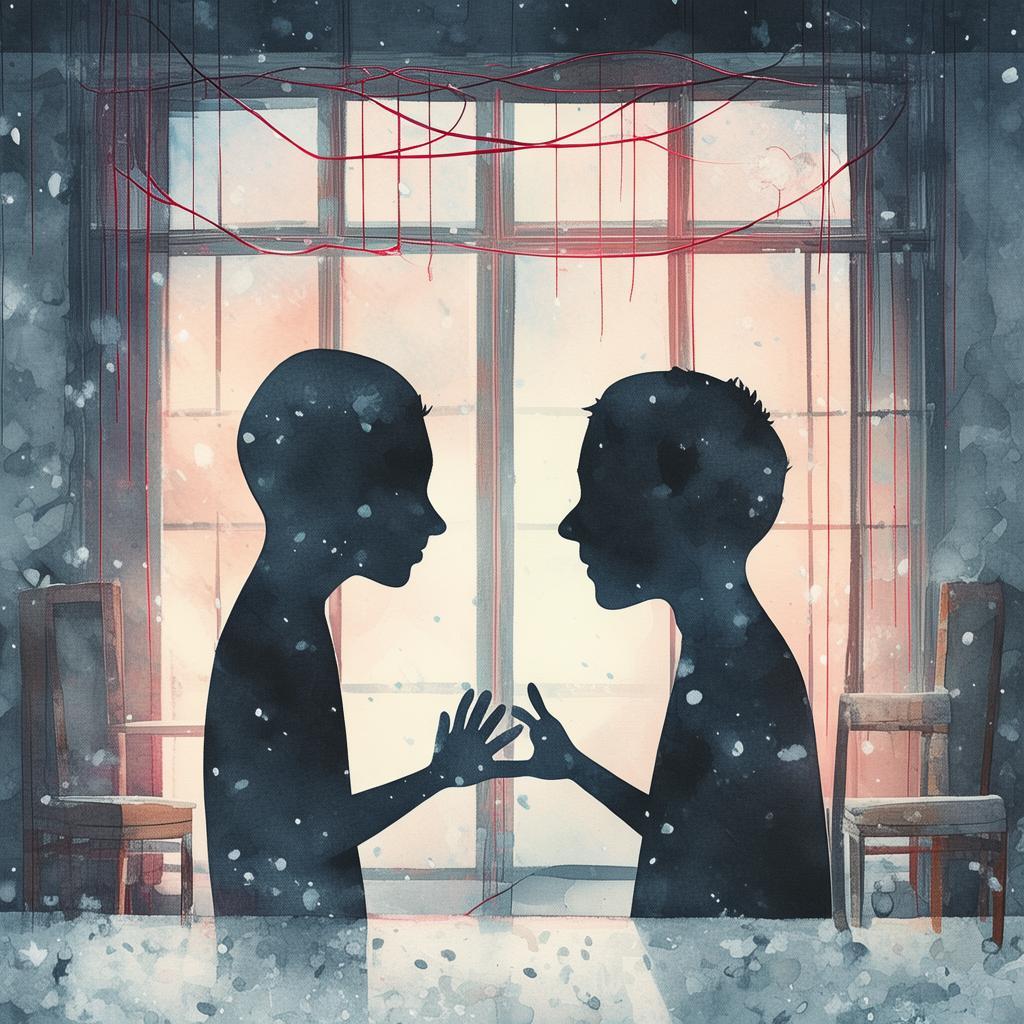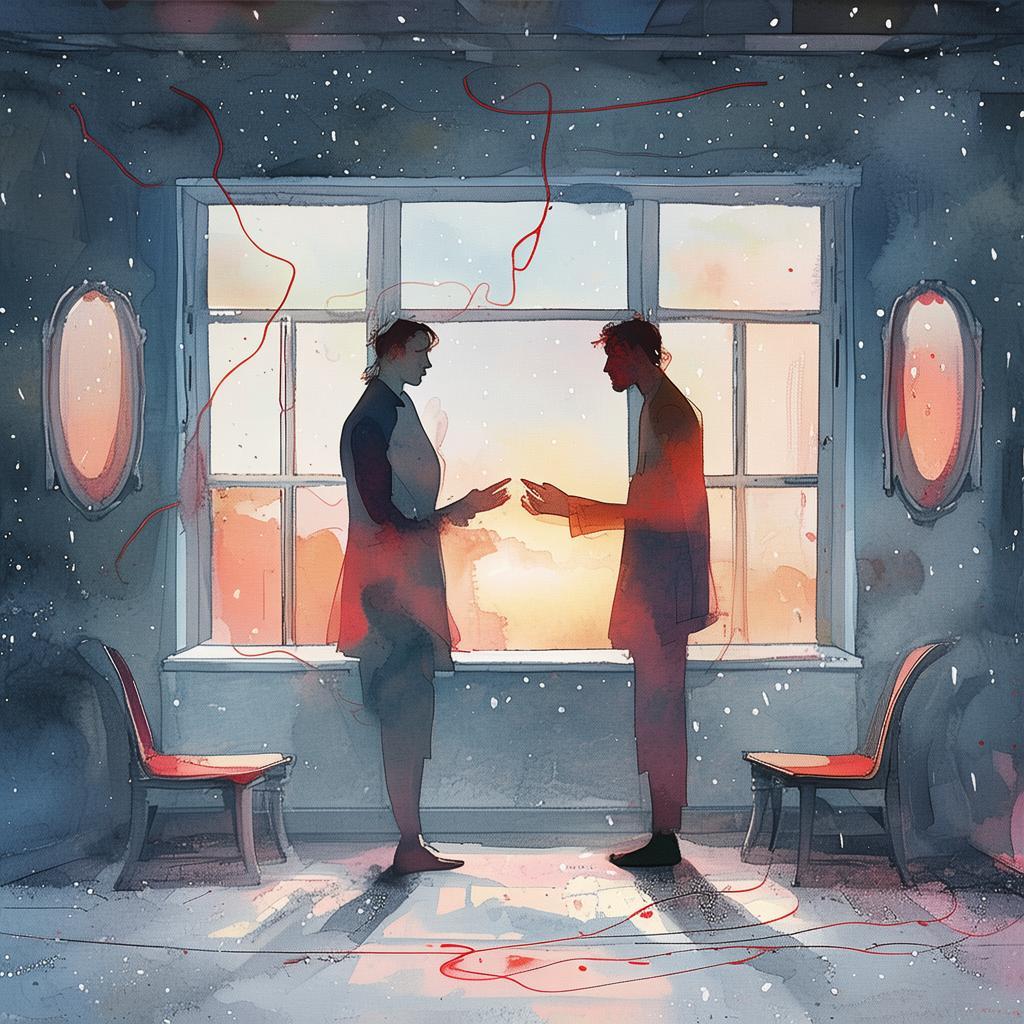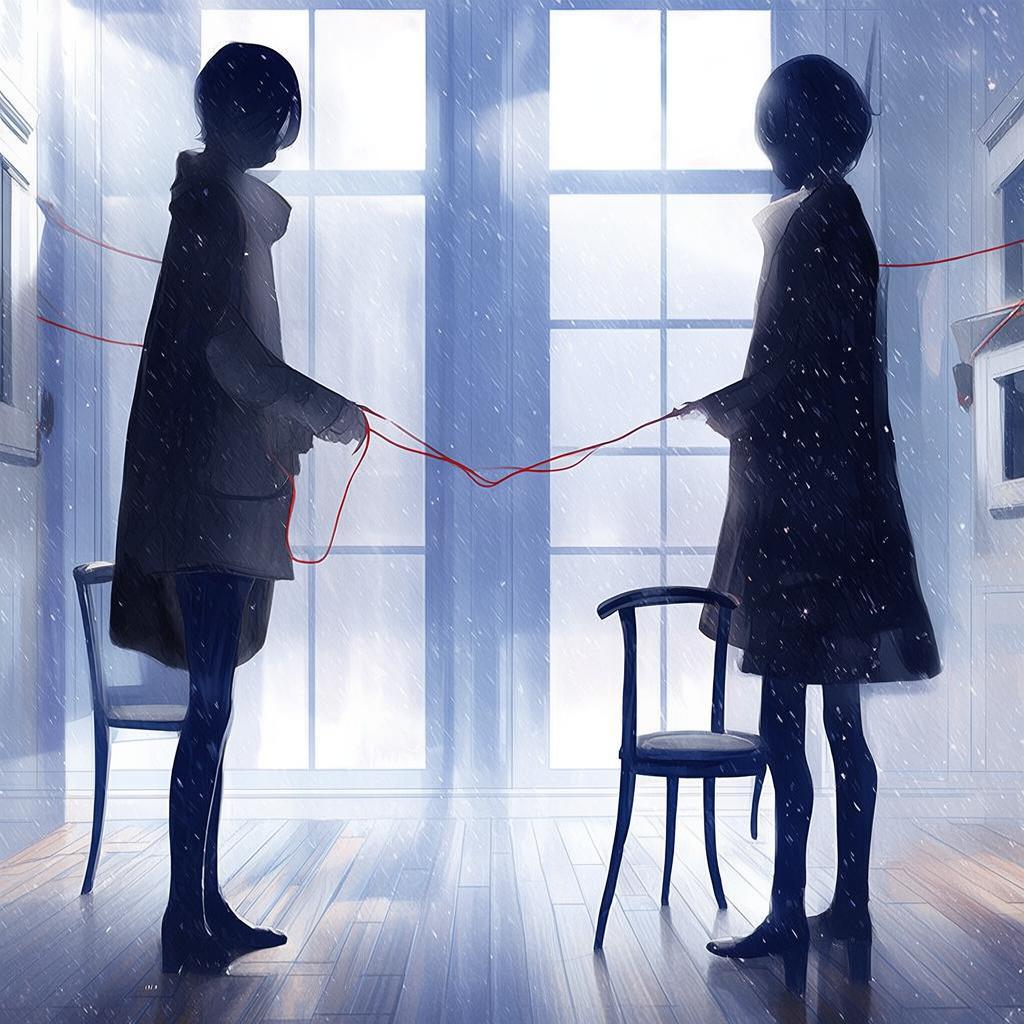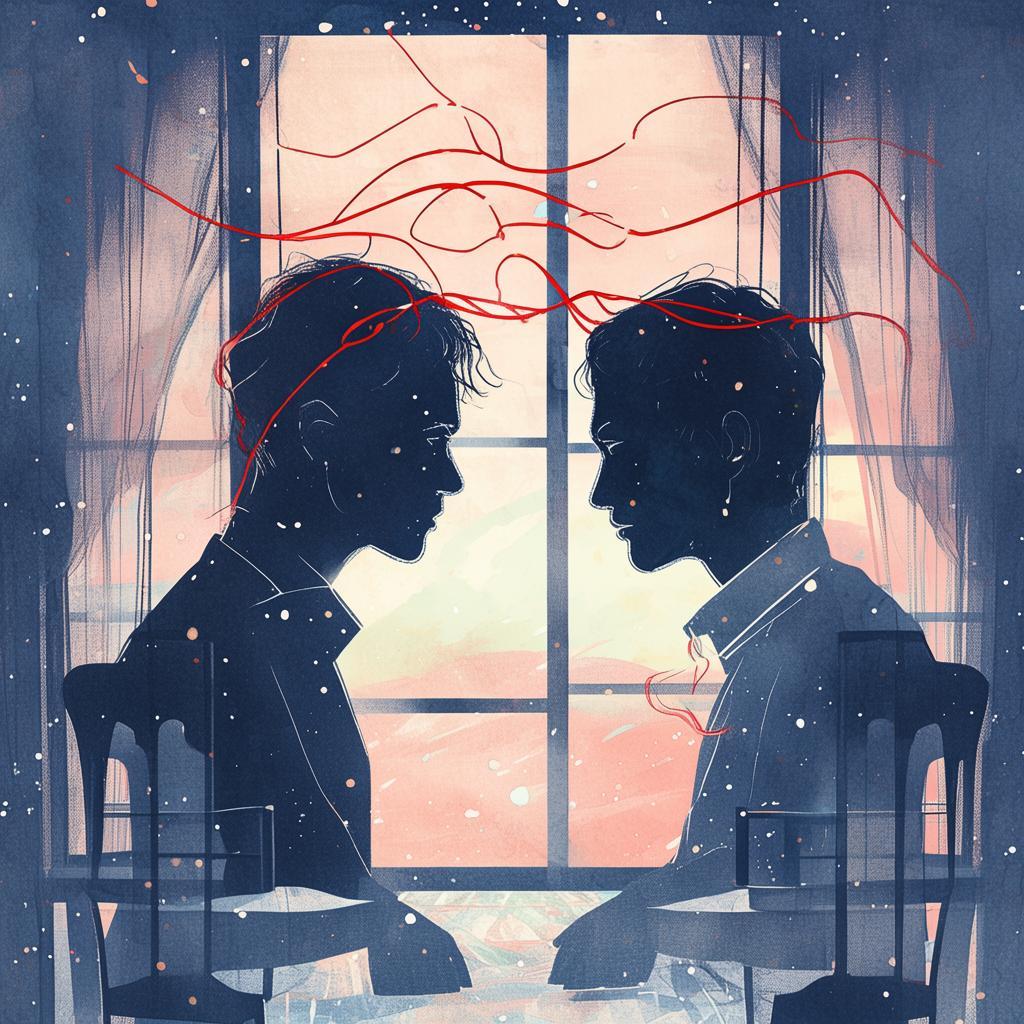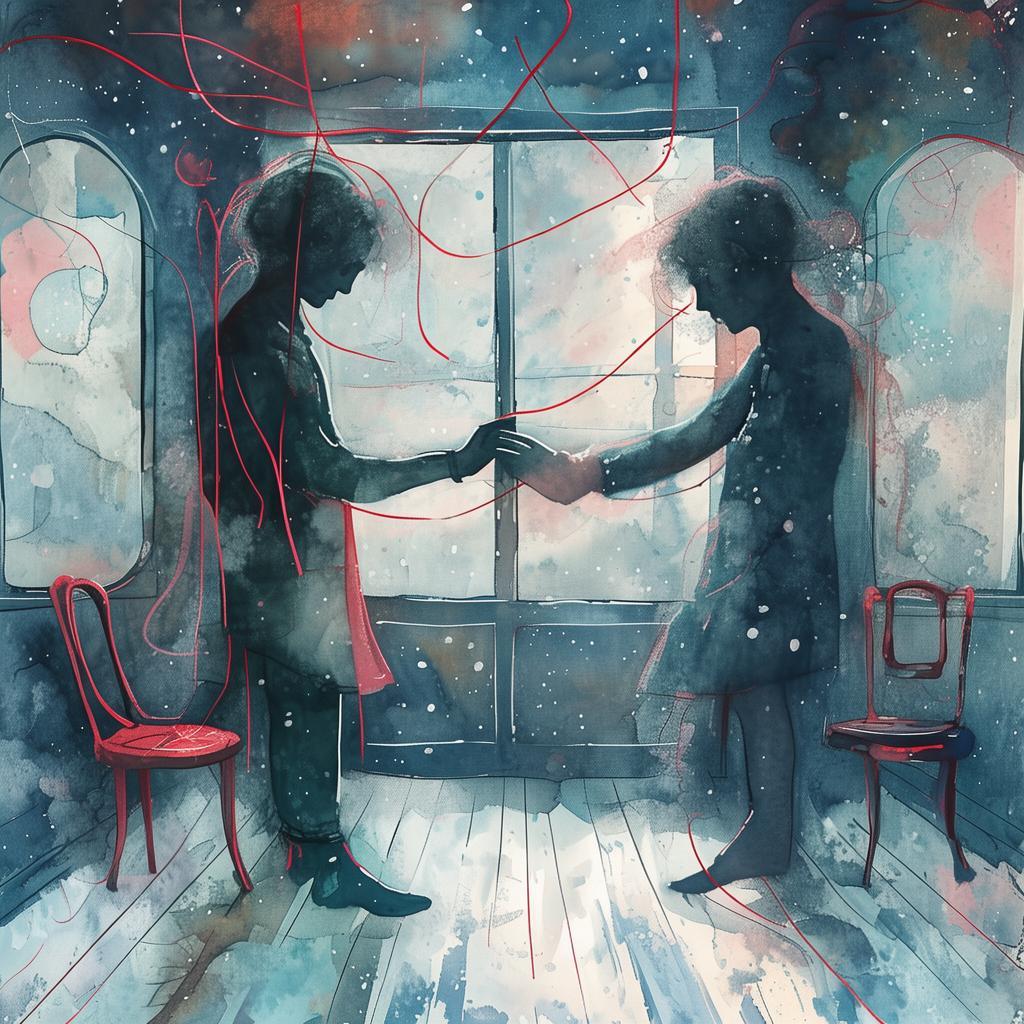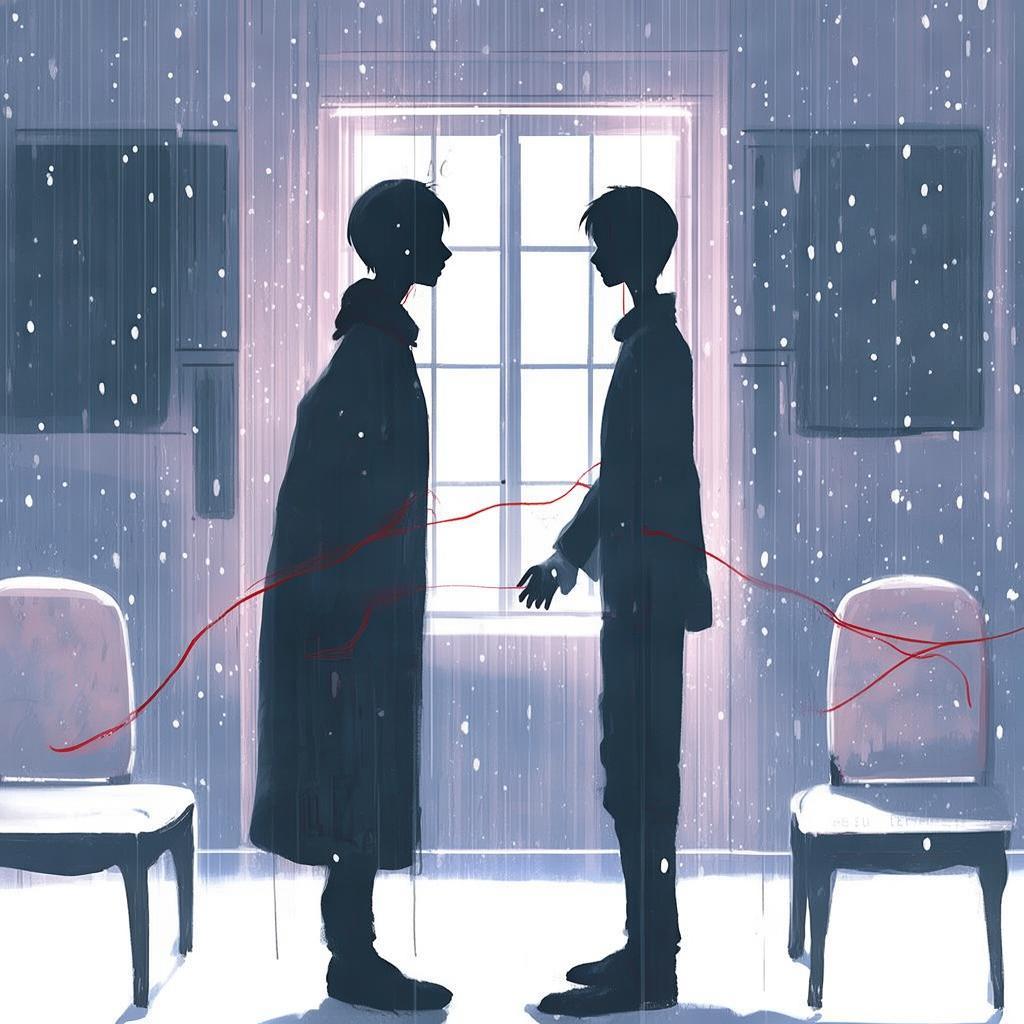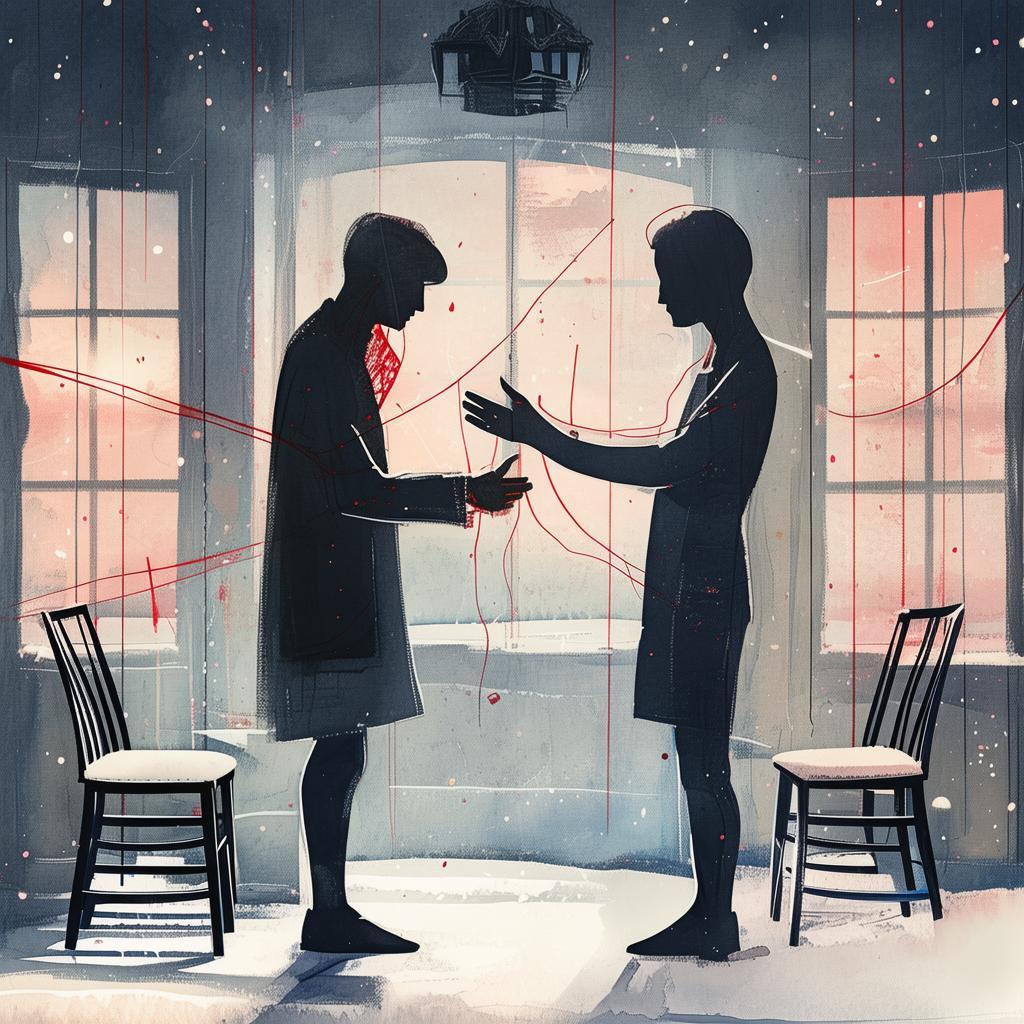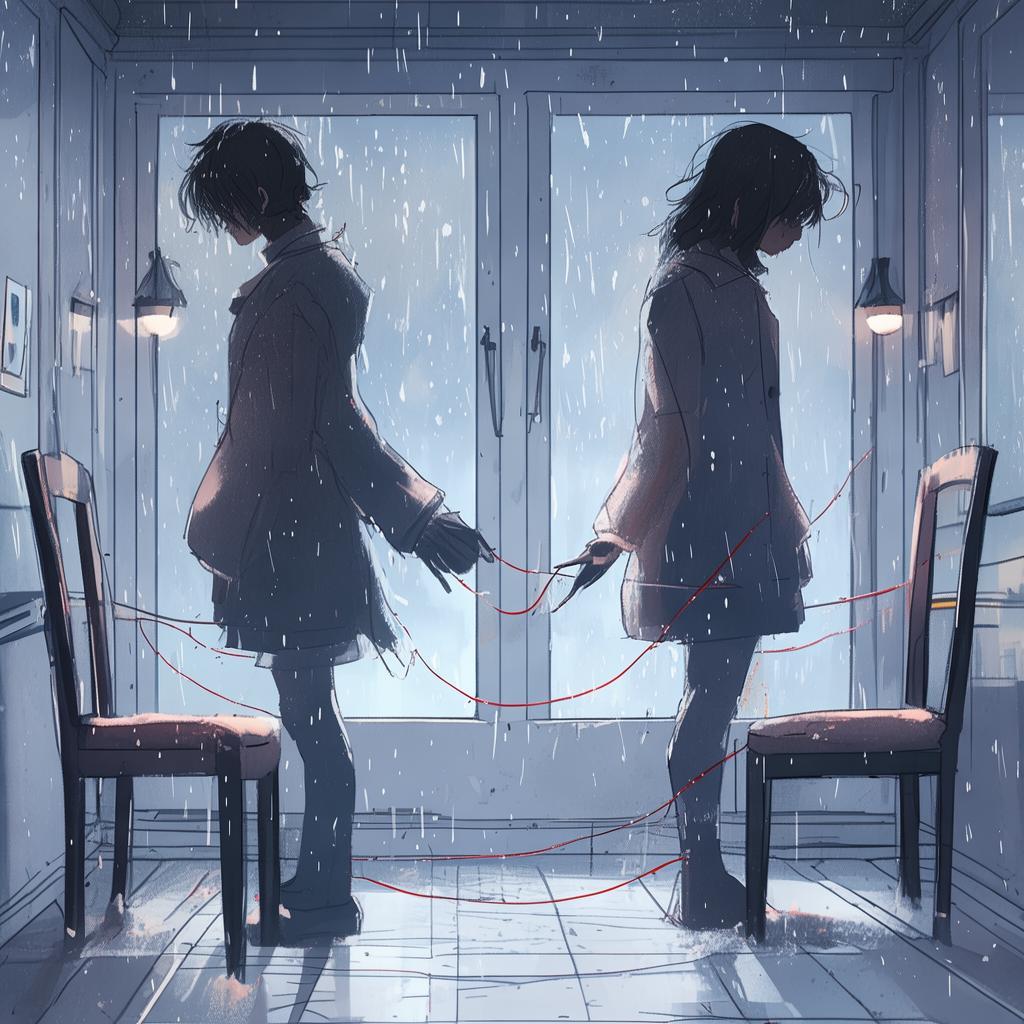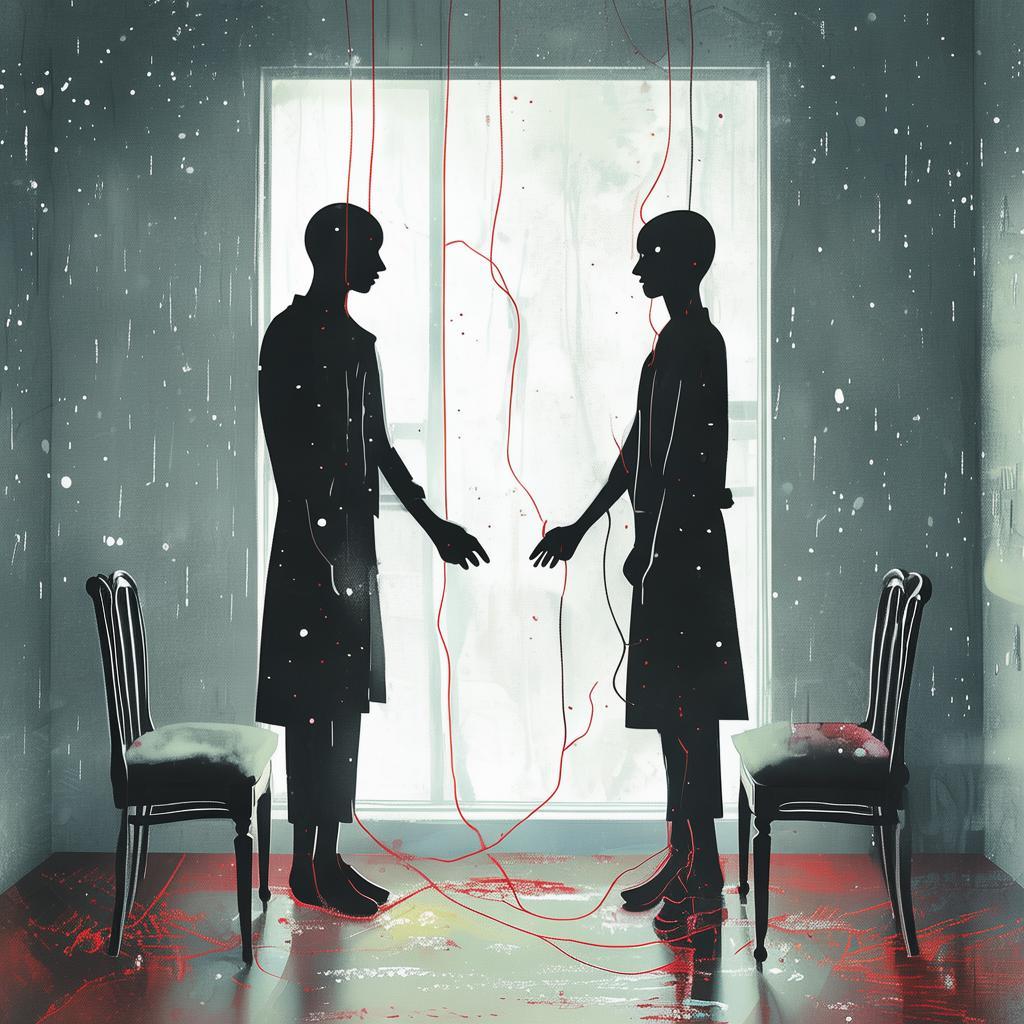Whispers of the Bard: A Love Unveiled
In the quaint village of Willow's End, nestled between rolling hills and whispering forests, there lived a tiny poet named Emrys. His talent was unparalleled, his verses enchanting, and his presence a mystery to all but a few. Emrys was known to wander the cobblestone streets at dawn, his quill in hand, capturing the essence of the world in verses that left listeners breathless.
One crisp autumn morning, as the leaves danced to the rhythm of the wind, Emrys encountered a man who would change his life forever. The man, named Lysander, was a wanderer with a soul as vast as the sky, and eyes that seemed to hold the stars themselves. Their paths crossed in the market square, where Emrys had taken refuge from the chill. Lysander's laughter, a rich melody that seemed to warm the very air, caught Emrys's attention.
"Your poetry," Lysander began, "is like a song that speaks to the heart." Emrys, surprised by the compliment, felt his cheeks flush with color. "Thank you," he stammered, his voice barely above a whisper.
From that moment, their friendship blossomed like the vibrant autumn leaves. They shared stories, dreams, and laughter, and soon Emrys found himself looking forward to each new encounter with Lysander. Yet, there was a secret that Lysander harbored, a truth that could shatter the fragile bond between them.
Lysander was gay, a fact he had kept hidden for fear of judgment and betrayal. He had seen the pain in the eyes of friends who dared to reveal their true selves, only to be met with rejection and scorn. Emrys, however, was different. He was kind, understanding, and had an aura of acceptance that made Lysander feel safe.
The village, though picturesque, was not immune to the biases of the world. One evening, as the sun dipped below the horizon, casting a golden glow over the village, a group of villagers gathered to discuss the "immoral" acts of the village's outcasts. Among them was Lysander, who had overheard the conversation and felt the weight of their words.
The following morning, as Emrys wandered the streets, he stumbled upon Lysander, his face pale and eyes red with unshed tears. "Emrys," Lysander whispered, "I... I have to leave. I can't bear the thought of being a burden to you."
Emrys's heart ached for his friend, but he knew Lysander was right. "Go, Lysander. You must be free to be yourself," he said, his voice trembling.
Days turned into weeks, and Emrys's days were filled with melancholy and longing. He wrote a series of poems dedicated to Lysander, capturing the essence of their friendship and the love that had blossomed between them. The village, however, remained unaware of the depth of their bond.
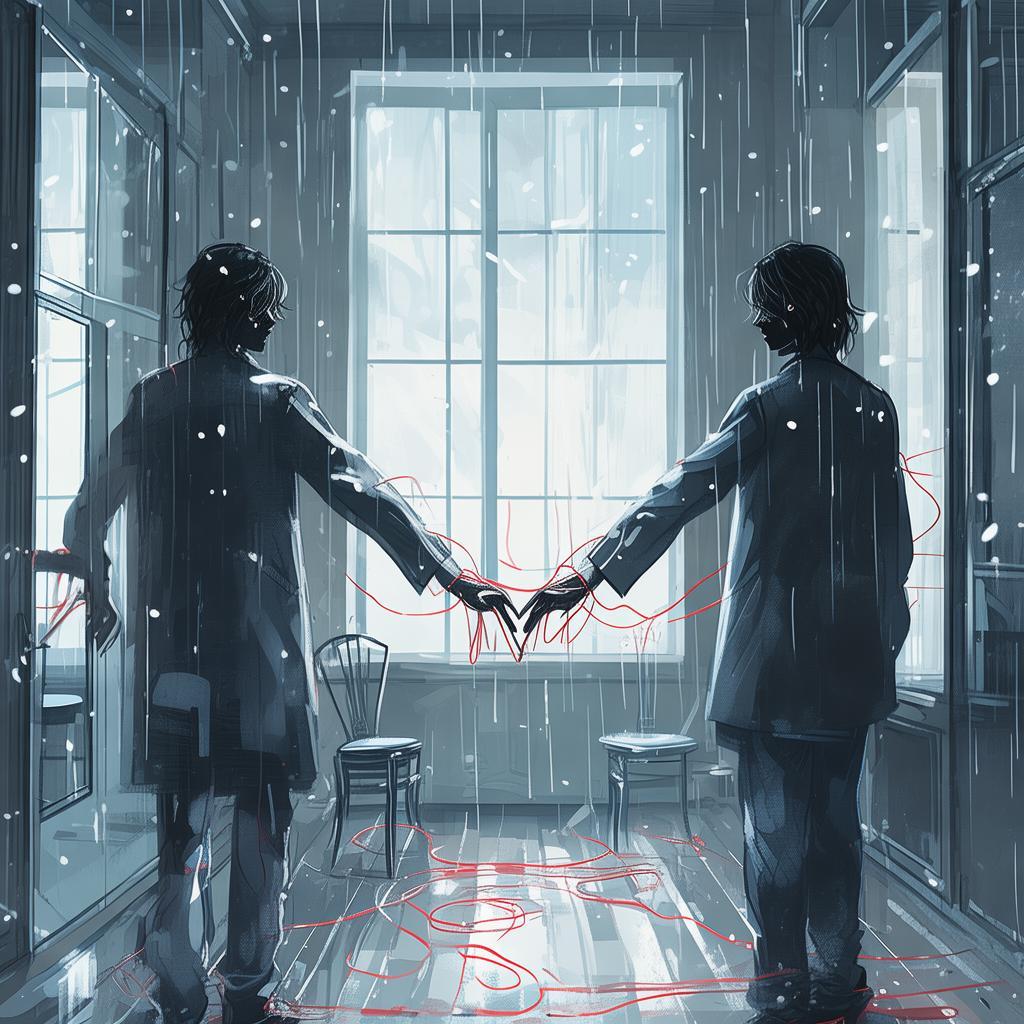
One evening, as the moon hung low in the sky, Emrys received a letter from Lysander. It spoke of a new life, a new chance to be true to himself. But the letter also spoke of pain, of a village that had shunned him for who he was.
Emrys knew he had to act. He penned a poem that would echo through the village, a love story that would speak to the hearts of all who heard it. He shared the poem with the village's most influential man, a man known for his wisdom and compassion.
The poem was a revelation, a tale of love and acceptance that resonated with the villagers. As word spread, the once judgmental community began to question their own beliefs and the way they treated others.
Lysander returned to Willow's End, his heart full of hope. He found Emrys, who had remained by his side throughout his absence. Their reunion was a celebration of love and courage, a testament to the power of truth and acceptance.
As the years passed, Emrys's poetry continued to inspire the village, and Lysander's presence brought a newfound sense of freedom. They were a symbol of love, a reminder that even in a world rife with judgment, there was always a place for those who dared to love openly.
The Little Bard's Ballad became more than a collection of verses; it was a story that would be told for generations, a tale of love that overcame adversity and a friendship that defied all odds. Emrys and Lysander's love was not just a romantic comedy; it was a story of the human spirit, of the courage to reveal one's true self, and the power of love to heal even the deepest wounds.
✨ Original Statement ✨
All articles published on this website (including but not limited to text, images, videos, and other content) are original or authorized for reposting and are protected by relevant laws. Without the explicit written permission of this website, no individual or organization may copy, modify, repost, or use the content for commercial purposes.
If you need to quote or cooperate, please contact this site for authorization. We reserve the right to pursue legal responsibility for any unauthorized use.
Hereby declared.
